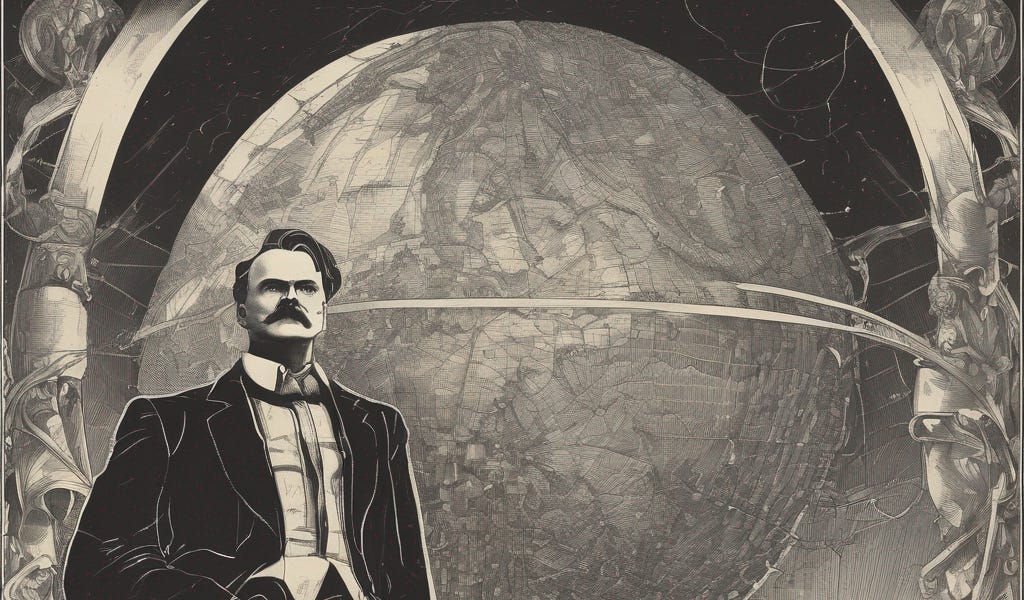The striving for distinction is the striving for domination over the next man, though it be a very indirect domination and only felt or even dreamed. There is a long scale of degrees of this secretly desired domination, and a complete catalogue of them would be almost the same thing as a history of culture, from the earliest, still grotesque barbarism up to the grotesqueries of over-refinement and morbid idealism.- Friedrich Nietzsche
There are quite a few philosophical terms thrown around when people are “trying” to have an intellectual discussion. Especially after a few Woodford Reserve Double Oaked on a rock.
I love philosophical discourse, so when the opportunity presents itself, I open up the flood gates with the WILL TO POWER. Nothing is more important for a person to understand in the western world. So, what is will to power and why should one know it’s core principles?
To put it succinctly, Will to Power is everything. According to Nietzsche, it is the driving force that empowers all things. It defies total definition because it is the creator of definitions; yet, I will still attempt to define it.
I’m being ambiguous on purpose, Nietzsche is complex and his writings should not be judged on a glance. Reading Nietzsche on only a surface level can make one a psycho ,reading Nietzsche in full depth also can make one a psycho… Such is life, its all balance - Aristotle knew what he was talking about. Moving on.
The easiest form of Will to Power to understand is its function as a psychological driver to human action. Put simply, Nietzsche proposes that everything we do is an attempt to assert ourselves onto the world. In other words, we are projecting the authority of our ego over and above the authority of the egos of others. DOMINATION.
Nietzsche emphasized the importance of individual self-realization AND the "will to power." He believed that humanity's ultimate task is to overcome societal constraints and achieve its fullest potential, embracing its unique creativity and individuality. Thus, the one thing man must do best is to become the "Ubermensch" or the "Overman," transcending conventional values and becoming the creator of one's own destiny.
Nietzsche proposed several ways to pursue becoming the "Ubermensch" or Overman:
Self-Overcoming: Individuals should continually strive to overcome their limitations, both physical and mental, through self-examination and personal growth
Rejecting Herd Mentality: Nietzsche criticized conformity and encouraged people to resist societal pressures and values that suppress individuality.
Master Morality: He advocated for a shift away from slave morality, which he saw as a system of values imposed by the weak. Instead, he favored master morality, where individuals establish their own values and ethics.
Embrace Will to Power: Recognize and harness the "will to power," which represents the innate drive for self-affirmation and self-expression. Channel this energy into creative endeavors.
Create Art and Culture: Nietzsche believed that true culture and art are born from the individual's creative expression. Engaging in artistic and intellectual pursuits is a means to self-realization.
Amor Fati: Embrace a love of one's fate, accepting all experiences, even suffering, as essential parts of life's journey.
Live Authentically: Pursue a life that reflects your own values and desires rather than conforming to external expectations.
Pursuing the Overman ideal is a deeply personal and philosophical journey that requires self-reflection and the courage to break away from societal norms and limitations. Doing so can function as a modern proxy for a man to move from adolescence to adulthood.
“The victorious concept ‘force’, by means of which our physicists have created God and the world, still needs to be completed: an inner will must be ascribed to it, which I designate as ‘will to power’.” (Will to Power, 619)

